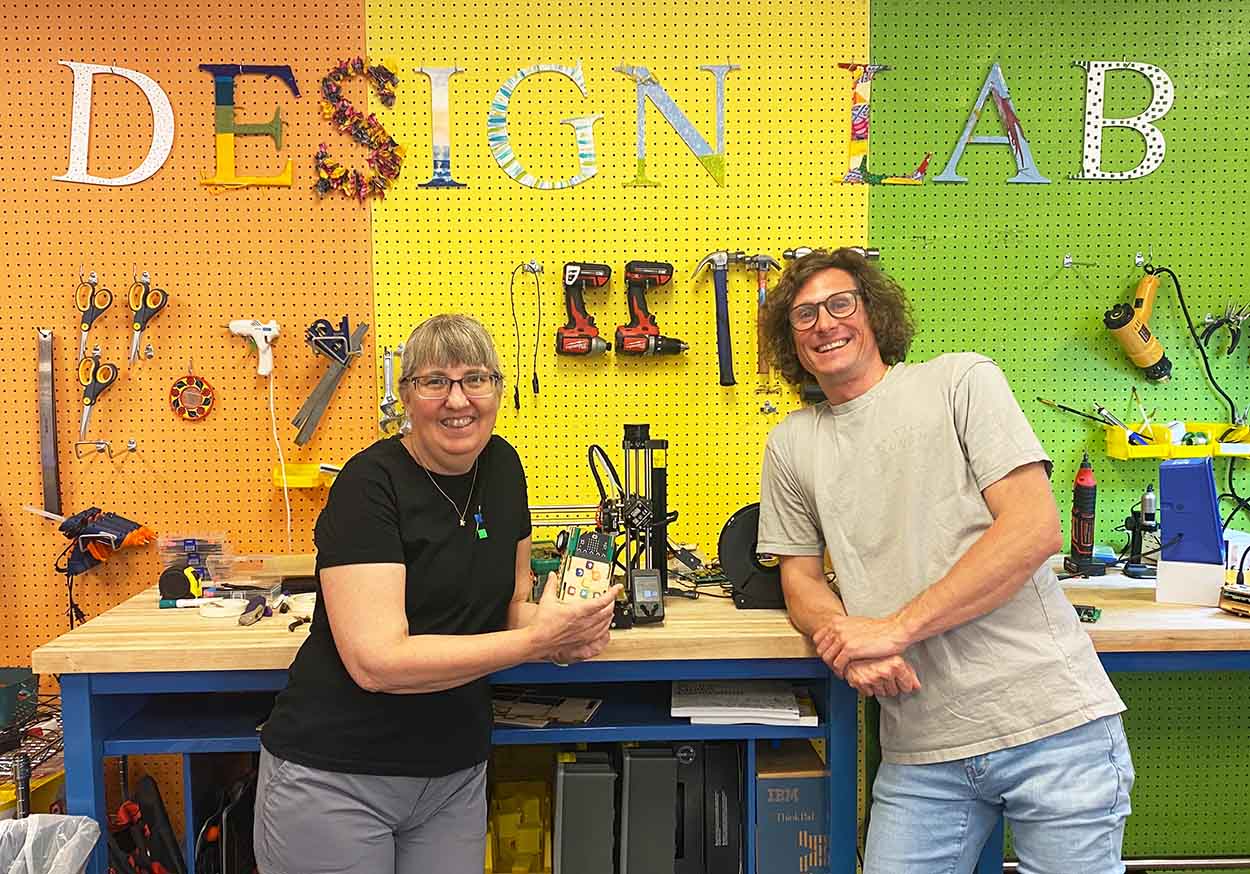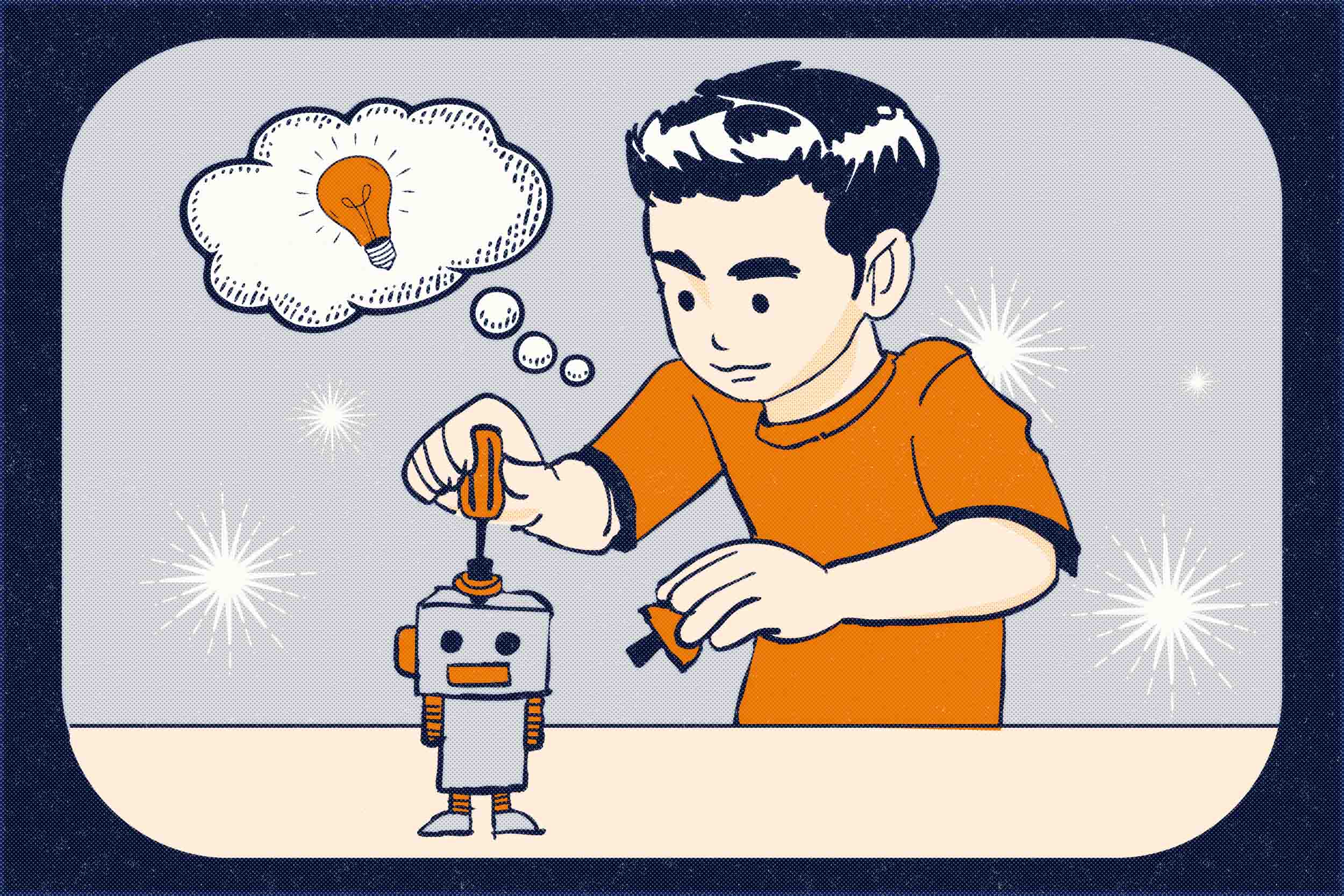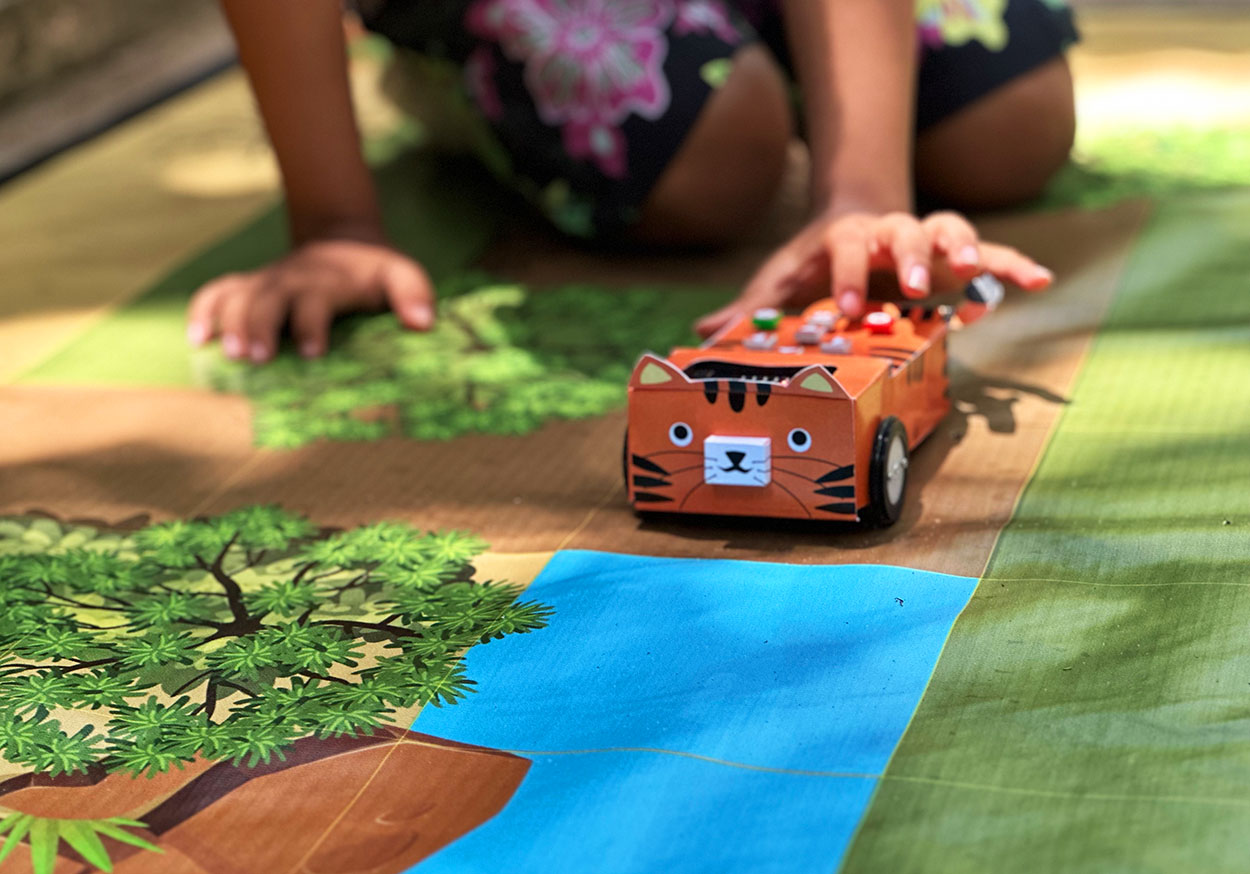It’s a Tuesday afternoon, and a class of Charlottesville fourth graders returns from recess, still buzzing with energy. Their teacher immediately channels that energy, introducing educational robots – tools the students use in pairs to simulate “exploring” the ocean floor.
As students begin coding their robots, engagement soars. What begins as a lesson on marine science quickly transforms into a hands-on investigation – combining science, storytelling and computational thinking.
That’s the mission of Roversa Robotics, a startup company committed to making computer science and robotics accessible to K–12 students worldwide, especially in underserved communities.
Developed in collaboration between the University of Virginia and Universidad del Norte in Colombia, Roversa focuses on affordability, adaptability and multilingual support.

Kim Wilkens, left, and Eric Bredder, who earned his doctorate from the UVA School of Education and Human Development, are the co-founders of Roversa Robotics. (Contributed photo)
“When kids program things on their computers, they don’t even know where it goes – they don’t understand the ecosystem yet,” Roversa co-founder Eric Bredder said. “But robots can help demystify this, because when you program a robot, and you see it move and you see it do the thing you told it to do, there’s a much higher level of connection students make with a programming environment. It creates a better learning environment, and that’s why teachers love it.”
Roversa has become one of Central Virginia’s hottest startups with the help of the Enterprise Studio, the newly formed branch of the UVA Licensing & Ventures Group led by entrepreneur and tech executive Lisa Bowers and entrepreneur-in-residence Jim Zuffoletti.
“The Enterprise Studio has taken our company to the next level,” Roversa co-founder Kim Wilkens said. “They’ve provided a strong network of entrepreneurs, faculty and students in and around UVA and have helped us refine our ideas and plans to ensure our robot is ready to take to market.
“Working with members of the LVG licensing team, going through LVG’s I-Corps program and receiving a translational investment from the Seed Fund has also been invaluable.”
Roversa robots are being piloted in both the U.S. and Latin America.












